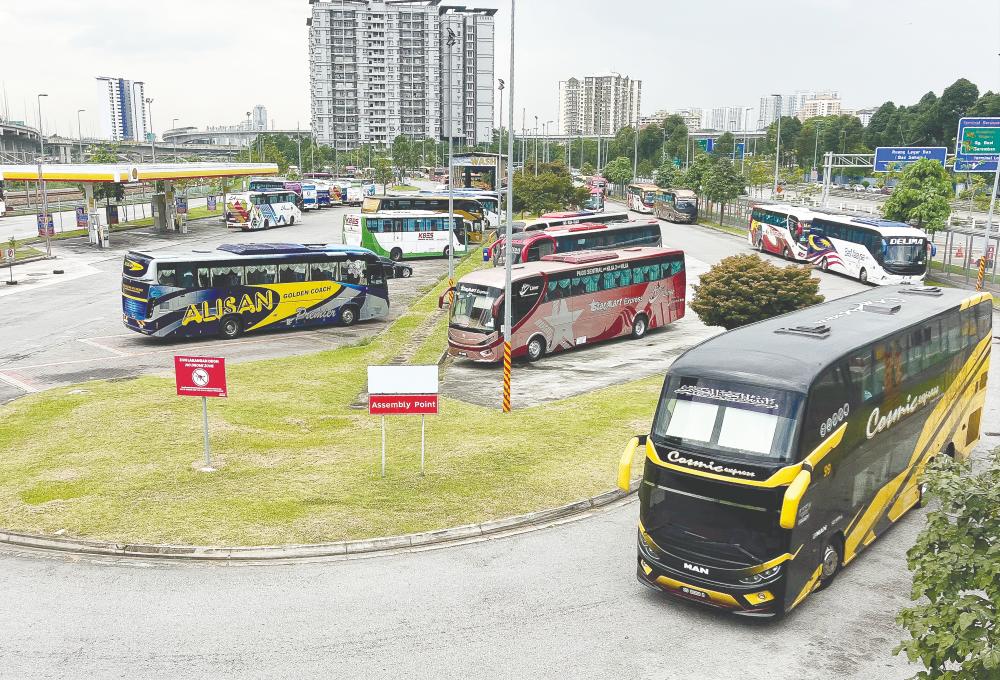PETALING JAYA: Bus and lorry services companies are grappling with a critical shortage of drivers, threatening their viability and sustainability, said Pan Malaysia Bus Operators Association president Datuk Mohamad Ashfar Ali.
He said the affected sector, which includes cargo lorries, express buses and transport vehicles for factory workers, students and tourists, is facing a shortage of about 5,000 drivers.
“For buses, many companies are struggling to provide a second driver for long-distance journeys.”
On Dec 26 last year, the Road Transport Department (RTD) issued summonses to operators of 25 express and tour buses for failing to comply with the rule requiring a second driver. The summonses were issued during a special operation conducted at three toll plazas in Penang.
On April 5, Penang RTD director Zulkifly Ismail emphasised the importance of the second driver requirement for express buses covering distances of over 300km or journeys exceeding four hours.
“This rule ensures drivers have adequate rest and reduces the risk of crashes. Companies that fail to adhere to this regulation will face action.”
Mohamad Ashfar said the driver shortage has been a persistent problem and worsened due to several challenges.
“Most bus and lorry drivers in Malaysia are nearing retirement age or have left the service. Many are leaving for other sectors or migrating to Singapore, where better salaries are offered,” he said, adding that high entry costs for aspiring drivers were also a barrier.
“Obtaining an e-licence, Public Service Vehicle Licence or Goods Driving Licence for operating heavy vehicles costs between RM4,000 and RM5,000. Potential drivers are deterred by these costs, making it harder to attract new talent to the profession.”
He said the shortage has created operational challenges and disciplinary issues among existing drivers, who are aware of the difficulties employers face in replacing them.
“They often disregard employer directives and some even refuse to pay fines for offences, such as speeding, illegal parking and running red lights.”
He urged the government and relevant authorities to provide financial assistance or introduce free training programmes for aspiring drivers, particularly those from the B40 group.
“The Transport Ministry initiated programmes to sponsor a limited number of individuals to obtain their licences. However, the efforts were insufficient.
“The government should consider offering free training for drivers to ease their financial burden, help produce more licensed professionals and create job opportunities.”
He said such measures are crucial, given the critical role bus drivers play in ensuring passenger and road safety, as well as the contributions of lorry drivers to the economy.
Peninsular Malaysia Malay Express Bus Operators Association president Laili Ismail said: “Government support would resolve the driver shortage and allow for a selection of higher quality drivers who meet safety and performance standards.”
He urged the government to assist bus operators struggling with rising costs, including fuel prices, maintenance and operating expenses.
He said uncontrolled cost increases have created unhealthy competition among bus operators, with many forced to lower ticket prices to attract passengers.
“They do this often without considering the long-term sustainability of their business. So, if the government does not step in to assist, many express bus operators would have to close. This would lead to thousands of employees and drivers losing their livelihood, while depriving the public of the convenience and connectivity that bus services provide.”









